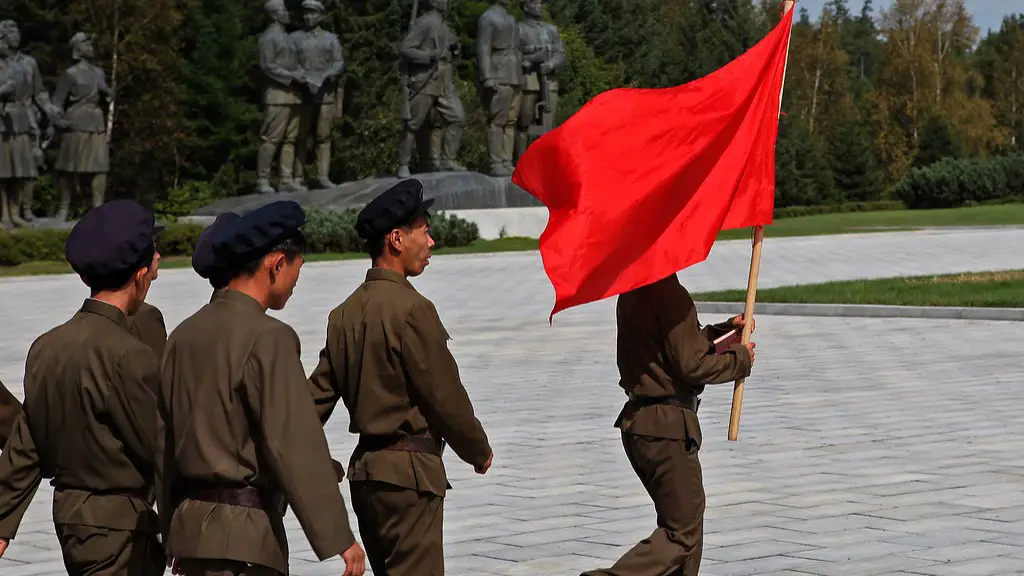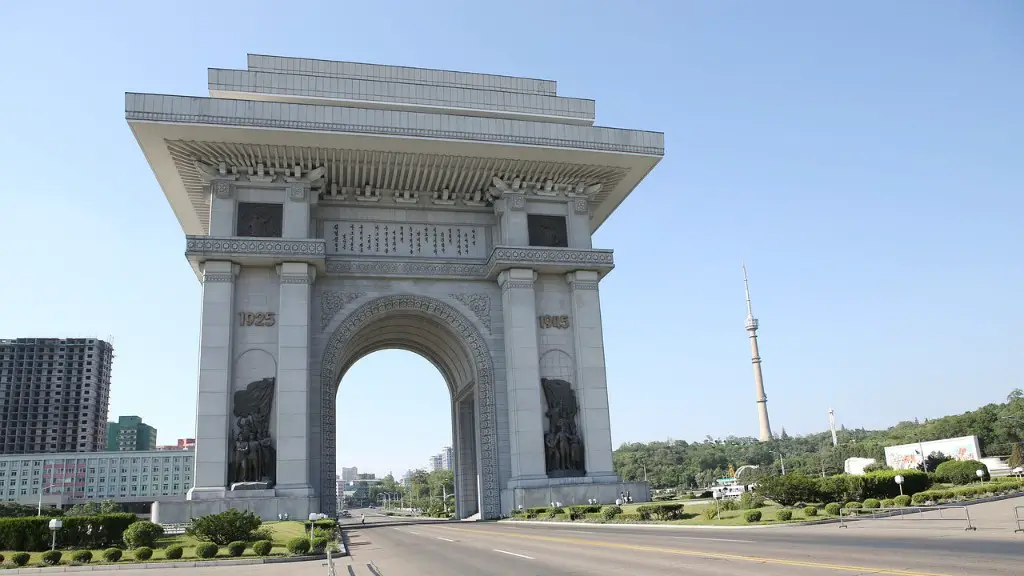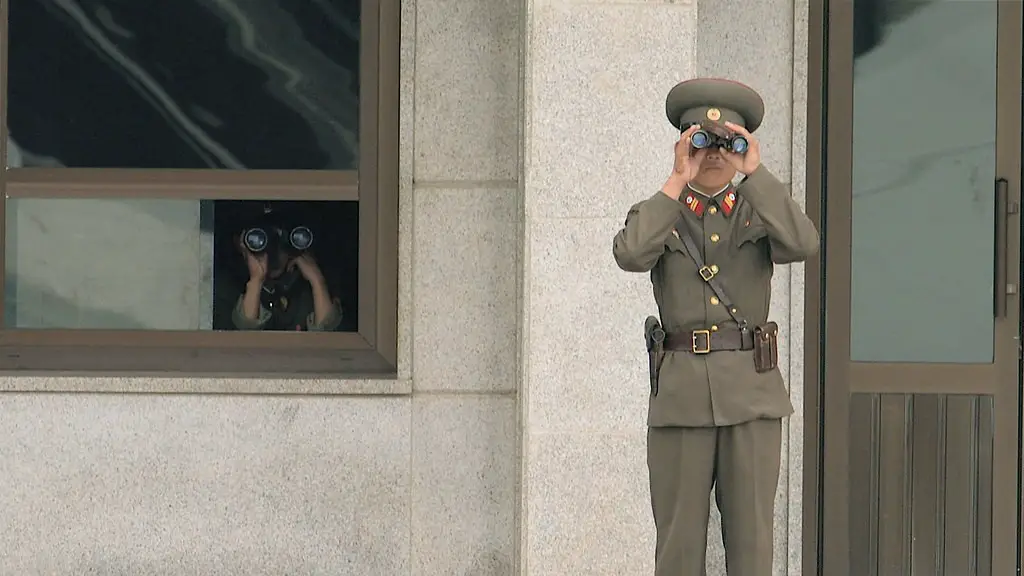Religion in North Korea is primarily concerned with the worship of the state’s founder Kim Il-Sung and his family. There is also a deities associated with Korean shamanism and Buddhism. Christians make up a very small minority of the population and are subject to discrimination.
The North Korean government does not officially recognize any religions, and religious activity is strongly suppressed. Nevertheless, some North Koreans do practice religion in secret. The most common religions are Christianity and Buddhism.
What is North Korea’s main religion?
Religion is not a major part of North Korean society. The main religions are Shamanism and Chondoism, but there are also small communities of Buddhists and Christians. Most people are not very religious, and religion is not a major part of their lives.
Christians in North Korea must practice their faith in secret. They can’t meet together to worship or tell others about Jesus. If they are caught with a Bible, singing a hymn, or praying, they can face up to 15 years in a labor camp.
What religion is not allowed in North Korea
Although North Korea is technically an atheist state, there are still some religious beliefs and practices that exist within the country. The two main Korean religions are Shamanism and Chondoism, but there are also smaller numbers of Christians and Buddhists. The North Korean constitution guarantees freedom of religion, but in reality this is not the case. Religious beliefs and practices are often suppressed by the government, and people who do adhere to a religion often do so in secret.
The Chinese government only permits Christians who are over the age of 18 to join officially sanctioned Christian groups. These groups are registered with the government-sanctioned Catholic Patriotic Church, the China Christian Council and the Protestant Three-Self Church. This policy is in place to prevent Christians from proselytizing and spreading their faith to those who are not already Christians.
What do North Koreans do to Christians?
There are numerous reports of Christians being imprisoned and subjected to torture and inhuman treatment because of their faith. The family members of reported Christians are also said to be targeted, including children. Christian Solidarity Worldwide says that this is a serious issue that needs to be addressed.
Christians in North Korea are subject to severe abuse and discrimination. Their religion is considered antirevolutionary and antinationalist due to its association with foreign imperialism, and the US and South Korea in particular. Christians are routinely sent to the kwanliso or political prison camps, where they are subject to torture and other forms of mistreatment.
What countries Cannot enter North Korea?
If you want to travel to North Korea, you will need to obtain a visa. You can enter North Korea through China or Russia, either by air or a train. So, you have to check the visa and entry requirements for those countries as well. Holders of diplomatic or service passports of the following countries can visit North Korea without a visa: Albania, Belarus, Bulgaria, China, Cuba, Indonesia, Iran, Kyrgyzstan.
The China-North Korea relationship is unique. Not only is China North Korea’s closest ally, but the two countries also have a mutual aid and cooperation treaty. This treaty is currently the only defense treaty either country has with any nation.
The close relationship between China and North Korea is beneficial for both countries. China provides economic and military support to North Korea, while North Korea provides a strategic buffer for China. The two countries have a shared interest in maintaining stability in Northeast Asia and preventing the spread of democracy and capitalism.
The relationship between China and North Korea is not without its difficulties, however. North Korea’s nuclear weapons program is a source of tension, and China has been reluctant to use its leverage to pressure North Korea to give up its nuclear ambitions. There are also human rights concerns, as North Korea is one of the most repressive regimes in the world.
Despite these challenges, the China-North Korea relationship is strong and is likely to continue.
What is Russia’s religion
The Russian Orthodox Church is one of the most influential religious institutions in Russia. It has been the dominant religion in the country for almost a millennium and continues to be the most popular religion among Russians. The church lost a lot of its property and power during the communist period; however, it has quickly regained esteem and influence in recent years.
The Chinese Constitution guarantees freedom of religion, and while the state recognizes five religions, the practice of any other faith is formally prohibited. However, many other faiths are often tolerated, especially in the case of traditional Chinese beliefs.
Can I bring a Bible to China?
According to Chinese law, it is illegal to bring religious printed material into the country if the amount exceeds what is considered personal use. This rule is in place in order to prevent the spread of religious beliefs that may be considered disruptive or contrary to the Chinese way of life. Anyone caught bringing in religious printed material that exceeds the personal use limit may be subject to fines or other punishments.
The Bible is an important religious text for Christians, and for years China has only allowed sales of the Bible through official channels. However, this policy may be changing soon. Christian leaders in China have been given permission to import Bibles for sale, and it is expected that commercial sales of the Bible will be allowed in the near future. This is a significant development, as Christianity is the only major religion in China whose major holy text cannot currently be purchased through normal channels. This change may help to make Christianity more accessible and popular in China.
Where is Christianity growing the fastest
There is no one answer to this question. Each of these countries has a different history and culture, and each community of believers is likely to have different experiences and perspectives. However, it is clear that Christianity is growing rapidly in East Asia, and that many of the new believers are coming from relatively affluent backgrounds. This is likely to have a significant impact on the future of the region, as these Christians become more involved in their societies and work to share the gospel with others.
Since thelate 1940s, the Catholic Church in North Korea has been subject to Christian persecutions by the state. As a result, the dioceses of the Church have remained vacant and the community of adherents has been reduced to several hundred. However, the state-established Korean Catholic Association (KCA) has allowed the Church to retain a presence in North Korea and practice its faith under state supervision.
Does North Korea allow freedom of religion?
The UN Secretary-General’s report to the UN General Assembly noted that there was a “growing body of information” indicating that the rights of religious minorities were being violated in some countries. The report called on all countries to respect the right to freedom of religion and to take steps to protect religious minorities.
In Japan, there is no single religion that is dominant. Instead, people often follow a combination of practices from multiple religious traditions. According to the Government of Japan, 690% of the population practises Shintō, 667% practise Buddhism, 15% practise Christianity and 62% practise other religions as of 2018.
Warp Up
The North Korean government promotes atheism and there is no freedom of religion. The country’s constitution states that North Korea is an atheist state and that religion is not to be practiced.
The conclusion is that there is no official religion in North Korea, however the majority of the population is atheistic or non-religious. There is a small minority of Christians, Buddhists and Koreans who practice Confucianism.





